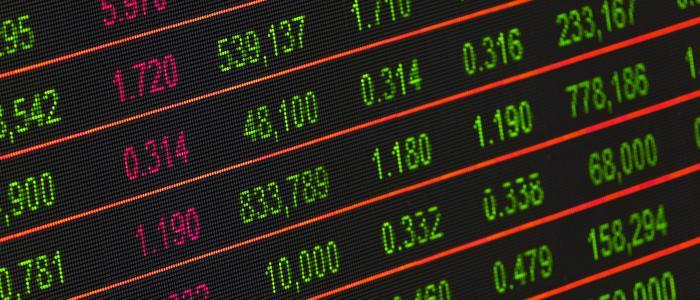All signs point to recession
Author: Duran Sarikaya
Date: 14.08.2019
German economy shrinks in the second quarter – forecast for current quarter even worse
In the second quarter of the year, the export-dependent German economy shrank due to trade conflicts and the weak global economy. Overall, gross domestic product fell by 0.1 percent between April and June compared with the previous quarter. This was announced by the Federal Statistical Office on Wednesday. At the beginning of the year, the largest European economy still recorded growth of 0.4 percent. Experts assume that the main reason for the negative development was the decline in exports.
Recession occurs when gross domestic product falls for two consecutive quarters compared with the previous quarter. It can be assumed that it will continue to shrink in the current quarter. This would mean that the German economy would be in recession since April. Recently, this was the case at the turn of the year 2012/13. Several factors are contributing to the contraction of the German economy.
Downturn in order situation and business climate
Until the end of the second quarter, incoming orders in the areas of industry and industrial production fell sharply. The business climate was very poor in general. In addition, there was a sharp decline for the first time since the financial crisis in 2009. Meanwhile, companies are preparing for a deteriorating situation. Even the service companies are currently struggling with problems concerning their business situation and future prospects. The signal of recession is thus quite clear.
How economists react to current GDP
“The nightmare of recession is becoming more real. Although economic output has shrunk only slightly at present, it has been stagnating for a year now. The trade dispute, Brexit and the cyclical slowdown have turned the former role model into a problem child on the growth side. For the summer half-year, a technical recession is very likely. The threshold to the classic recession is also low because of the high customs risks.”
“With the escalating trade conflicts in the USA, the increasingly probable chaos Brexit and the weakening world economy, the perfect storm has brewed together since the summer of last year. First the export-dependent German economy has increasingly been put on the spot, now it is in danger of capsizing completely in heavy seas. After announcing a 0.1 percent contraction in the second quarter today, the door is wide open to at least one technical recession – what means two negative quarters in a row.”
“Although the still robust development of the labor market remains a pillar of support in view of its stabilizing effect on private consumption, it also seems to shrink gradually, as the data for the past few months have shown. If one takes a look at the warning signals that are continuously being sent out by the leading indicators, there is no improvement in sight in the third quarter and a technical recession in Germany is therefore becoming evident. According to the ZEW survey published yesterday, this already seems unavoidable among financial market experts.”
“The fact is that the German economy has been crawling for a year now. For the second half of 2019 and also for next year there are many uncertainties for German exporters that can hardly be predicted. In addition to the Brexit, this is above all the trade dispute between the US and China and possible US tariffs on European cars. The domestic economy is expected to grow further, but at a slower pace. The economic weakness is gradually reaching the labor market, which will also have a dampening effect on consumption.”
Pessimistic mood among investors
Bond investors, who usually like to be used as predictors of a recession, are also pessimistic at the moment. This is illustrated, among other things, by the fact that ten-year government bonds are only a quarter of a percentage point higher than two-year government bonds. The last time that there was such a small premium was in the week before the Lehman Brothers bankruptcy in 2008. If you invest your money for a long time, you actually expect higher interest rates. However, if there is an economic and perhaps even a financial crisis, interest rates are expected to be low.
Even when searching on Google for the word recession, there are some indicators that suggest a similar direction. If the economy is bad, the population is increasingly looking for the exact meaning of the term. For this purpose, the search engines are also used, and this is exactly what is currently happening again. Since 2004 it has only happened twice that the search for the word was as high as it is now. Every time this was followed by a recession.
Clear answer from artificial intelligence
Many indicators help to assess the question around the current recession situation why forecasting models have been developed that help to filter the most reliable indicators and classify the information correctly. These forecasting models include machine learning, which was developed by the Ifo Institute in Munich and the Kiel Institute for the world economy. The model was primarily intended as a reaction to the 2008 economic crisis, which the former model had not recognized.
At present, the model predicts a recession for Germany with a probability of 92 percent. But there is also a good aspect: the probability that the recession will be as bad as it was in 2008 is zero according to the model.



Comments are closed.